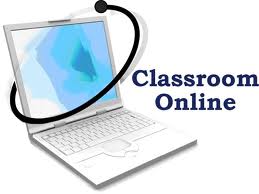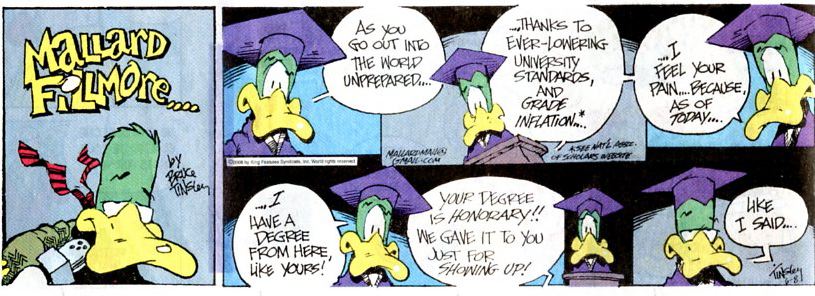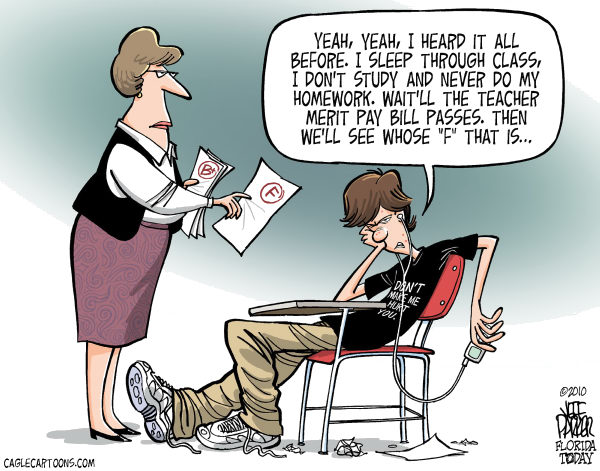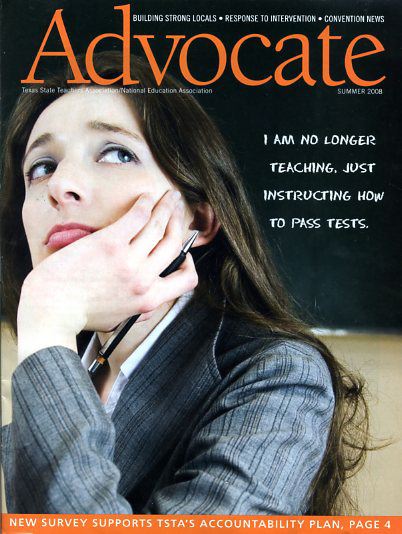 Stay tuned for future class communications! Scroll down for earlier postings! Stay tuned for future class communications! Scroll down for earlier postings!
.     |
|

 This is the Class Communication page!
This is the Class Communication page!

 This page just had a 'late night update". Please let me know if you find any major errors. This page just had a 'late night update". Please let me know if you find any major errors. 
Scroll down for a clean picture of the rainforest!
|

|
First day of the semester!
|
Photo: Dr. Nilsson by Rio Grande, Roma, Starr County, Texas, U.S.A.
 Students, welcome to the General Biology
Class Communication page!
   If this is the first time you’ve been in one of my classes, or if you are an "old" student, I’d like to welcome you! If this is the first time you’ve been in one of my classes, or if you are an "old" student, I’d like to welcome you! 

 This page was written to help you understand this class -- now and later during the semester -- and the teaching philosophy of the instructor. It is written both for General Biology I and General Biology II, for majors and non-majors, and for Online, hybrid and Web-enhanced Face-to-Face classes -- so there may be things that do not exactly apply to you (depending on what class you are in). It is assumed that you have submitted the Student Contract, and that you have read the "Start Here!" page on the General Biology Hub. If not, go back and read that page. Then come back here... This page was written to help you understand this class -- now and later during the semester -- and the teaching philosophy of the instructor. It is written both for General Biology I and General Biology II, for majors and non-majors, and for Online, hybrid and Web-enhanced Face-to-Face classes -- so there may be things that do not exactly apply to you (depending on what class you are in). It is assumed that you have submitted the Student Contract, and that you have read the "Start Here!" page on the General Biology Hub. If not, go back and read that page. Then come back here...


 Read Start Here? Then let's continue. Perhaps you need to brew some coffee -- or serve yourself your favorite drink, if it is not coffee? Read Start Here? Then let's continue. Perhaps you need to brew some coffee -- or serve yourself your favorite drink, if it is not coffee? 
 What you are reading here is the so called Class Communication Page. This page is NOT located on Blackboard, but on Dr. Nilsson's "desertbruchid" web site, which is housed on HostGator. (STC Faculty are no longer allowed to host their class pages on the STC server...) What you are reading here is the so called Class Communication Page. This page is NOT located on Blackboard, but on Dr. Nilsson's "desertbruchid" web site, which is housed on HostGator. (STC Faculty are no longer allowed to host their class pages on the STC server...)
 On this page, the Class Communication Page, the instructor will put messages that will not fit easily on Blackboard, e.g., reminders, about various topics that are not easily displayed/posted on Blackboard, but are of interest to the class. When such a posting is done there will be a message in the Class Help Desk about it... On this page, the Class Communication Page, the instructor will put messages that will not fit easily on Blackboard, e.g., reminders, about various topics that are not easily displayed/posted on Blackboard, but are of interest to the class. When such a posting is done there will be a message in the Class Help Desk about it...

 In this first Class Communication Page post I like to give you some ideas what this class is about -- or will be about... Some have already been mentioned on the Start Here page. Redundant? Perhaps? Perhaps not! Repetition is good, and the more you read about the class during the so called familiarization period, the better you will understand the class. You don't have any other assignments in this class the first part of the semester -- so don't say you don't have the time... In this first Class Communication Page post I like to give you some ideas what this class is about -- or will be about... Some have already been mentioned on the Start Here page. Redundant? Perhaps? Perhaps not! Repetition is good, and the more you read about the class during the so called familiarization period, the better you will understand the class. You don't have any other assignments in this class the first part of the semester -- so don't say you don't have the time...
 Too much to read? Don't want to read this page? Don't like to read instructions? Prefer trial and errors attempts? Too much to read? Don't want to read this page? Don't like to read instructions? Prefer trial and errors attempts?
 That is fine, and for some of you that might be the best way to approach this class. Let me then just say that this class is self-paced, within certain calendar dates posted in the Semester calendar. It is an easy class -- as long as you pay attention, do all the assignments, and do them on time as given in the Semester calendar. Need help -- use the Help Desk -- but not until AFTER you have read the instructions for what you seek help with. That is fine, and for some of you that might be the best way to approach this class. Let me then just say that this class is self-paced, within certain calendar dates posted in the Semester calendar. It is an easy class -- as long as you pay attention, do all the assignments, and do them on time as given in the Semester calendar. Need help -- use the Help Desk -- but not until AFTER you have read the instructions for what you seek help with.
 Below are the assignment categories for both the online and hybrid class, and here is a link to the General Biology Hub where you can explore on your own. For the assignment details see the Grading Criteria and for the assignment due dates see the Semester Calendar -- both are located on the General Biology Hub. Below are the assignment categories for both the online and hybrid class, and here is a link to the General Biology Hub where you can explore on your own. For the assignment details see the Grading Criteria and for the assignment due dates see the Semester Calendar -- both are located on the General Biology Hub.
 One more thing before (if) you leave: Reading Quiz 5 (one of the quizzes in category II below) is a prerequisite for several other assignments, so you need to do Reading Quiz 1 - 5 during the early part of the semester, and also the Class Discussion "Key" Quiz, which is a prerequisite for the General Class Discussion (the first of two class discussions held on Blackboard). One more thing before (if) you leave: Reading Quiz 5 (one of the quizzes in category II below) is a prerequisite for several other assignments, so you need to do Reading Quiz 1 - 5 during the early part of the semester, and also the Class Discussion "Key" Quiz, which is a prerequisite for the General Class Discussion (the first of two class discussions held on Blackboard).
I. Introduction Assignments
II. Reading Quizzes
III. Virtual Lab
IV. Semester Project
V. Memorization Quizzes
VI. Town Hall Meeting
VII. Endterm (Final) Exam
VIII. Learning Self-Assessment
Photo: Dr. Nilsson with his dog Toby -- one of several dogs... 
 Still here? Want to know more? Excellent! Let's continue! Still here? Want to know more? Excellent! Let's continue! 
  The first two weeks of the semester The first two weeks of the semester
 You have been given the first two weeks of the semester to familiarize yourself with the course setup (summer semesters a bit shorter). Take advantage of this! If you are reading this already the first day of the semester -- EXCELLENT!!! You have been given the first two weeks of the semester to familiarize yourself with the course setup (summer semesters a bit shorter). Take advantage of this! If you are reading this already the first day of the semester -- EXCELLENT!!!

 Again, there are no "real" assignment deadlines the first week and a half! Use this period of the semester to become familiar with the course!!! Again, there are no "real" assignment deadlines the first week and a half! Use this period of the semester to become familiar with the course!!!
 To become familiar with the course, THAT is the assignment at the beginning of the semester!!! Don't want to use the first two weeks for this -- fine -- but don't show up in panic later during the semester, because you decided "YIPEEE no assignment deadlines!!!" meant that you do nothing (or next to nothing) at the beginning of the semester. USE THE TIME WELL... To become familiar with the course, THAT is the assignment at the beginning of the semester!!! Don't want to use the first two weeks for this -- fine -- but don't show up in panic later during the semester, because you decided "YIPEEE no assignment deadlines!!!" meant that you do nothing (or next to nothing) at the beginning of the semester. USE THE TIME WELL...

Actually, regular fall and spring semesters are "pretty slow" compared to the summer semester...
  Grades Grades
 Understanding what to expect from a class by looking at EARNED grades and student comments from previous semesters can be very useful information. Below are the letter grades from the General Biology class taught by Dr. Nilsson at STC last semester. You can see that there are quite a bit of letter grade A. It is not a hard to EARN an A, but if you don't do all the assignments (or you miss a deadline -- THERE ARE NO MAKEUPS!!!) you might end up with a lower grade... Understanding what to expect from a class by looking at EARNED grades and student comments from previous semesters can be very useful information. Below are the letter grades from the General Biology class taught by Dr. Nilsson at STC last semester. You can see that there are quite a bit of letter grade A. It is not a hard to EARN an A, but if you don't do all the assignments (or you miss a deadline -- THERE ARE NO MAKEUPS!!!) you might end up with a lower grade...
 For some student comments about classes taught by Dr. Nilsson over the years, click on this link... For some student comments about classes taught by Dr. Nilsson over the years, click on this link...

Letter Grade Distributions:
A A A A A A A A A A A A A A
B B B B B B
C
D
F F F F F
 Usually students who "earn" a low grade have decided that it was not worth the time to do all the assignments in class, or procrastinated for some reason and ran out of time and could not finish the class assignments. Usually students who "earn" a low grade have decided that it was not worth the time to do all the assignments in class, or procrastinated for some reason and ran out of time and could not finish the class assignments.
 It is important to remember that this instructor does NOT GIVE students the grade at the end of the semester. In this class you EARN your grade. Students EARN D or F -- the instructor does NOT "give" D or F . It is important to remember that this instructor does NOT GIVE students the grade at the end of the semester. In this class you EARN your grade. Students EARN D or F -- the instructor does NOT "give" D or F .
 Note that there are many more A A A A A A A A A A A A A A. These students DID all assignments, did them in a timely manner, and EARNED the A A A A A A A A A A A A A A. Note that there are many more A A A A A A A A A A A A A A. These students DID all assignments, did them in a timely manner, and EARNED the A A A A A A A A A A A A A A.
|
  TEXTBOOK TEXTBOOK
 From previous semesters I know that some students -- for various reasons -- may have problems obtaining a copy of the textbook immediately at the beginning of the semester. You do need the textbook, so hopefully you will be able to get the book as soon as possible without too much trouble. If you cannot find the book at the STC bookstore, try Amazon.com -- it might even be cheaper there. They have it, both new and used, but I am not sure how long it will take to ship it. Search for the textbook by typing in the name... From previous semesters I know that some students -- for various reasons -- may have problems obtaining a copy of the textbook immediately at the beginning of the semester. You do need the textbook, so hopefully you will be able to get the book as soon as possible without too much trouble. If you cannot find the book at the STC bookstore, try Amazon.com -- it might even be cheaper there. They have it, both new and used, but I am not sure how long it will take to ship it. Search for the textbook by typing in the name...
 The textbook information is on the class hub. It is almost (?) impossible to miss the button that marks the link to the Textbook information, and it is also located below... The textbook information is on the class hub. It is almost (?) impossible to miss the button that marks the link to the Textbook information, and it is also located below...

 A lab manual is not used in online classes as taught by Dr. Nilsson, where field projects, virtual labs/dry labs and Blackboard quizzes and drills replaces the lab manual. For students in Face-to-Face classes, lab manual information will be given during the first class meeting. A lab manual is not used in online classes as taught by Dr. Nilsson, where field projects, virtual labs/dry labs and Blackboard quizzes and drills replaces the lab manual. For students in Face-to-Face classes, lab manual information will be given during the first class meeting.
  Due dates Due dates
 All due dates are REAL in this class. All due dates are in the Semester Calendar (link located on the General Biology Hub). Another document called the Grade Recorder is also available to print out to help keep track of deadlines (and grade points). All due dates are REAL in this class. All due dates are in the Semester Calendar (link located on the General Biology Hub). Another document called the Grade Recorder is also available to print out to help keep track of deadlines (and grade points).
 Many assignments open the same date at the beginning of the semester as noted in the Semester Calendar. Some assignments are already open... Many assignments open the same date at the beginning of the semester as noted in the Semester Calendar. Some assignments are already open... 
 Any assignment where the required submission is on Blackboard, -- if you are in an online class that means ALL ASSIGNMENTS -- students may submit anytime the assignment is open for submission. If the assignment is not open for submission you cannot submit anything, obviously. Any assignment where the required submission is on Blackboard, -- if you are in an online class that means ALL ASSIGNMENTS -- students may submit anytime the assignment is open for submission. If the assignment is not open for submission you cannot submit anything, obviously.
 Many assignment in the online classes are open for submission almost the whole semester. However, there are exceptions, which you need to keep track of by keeping an eye on the Semester Calendar. You must also remember that some assignments must be submitted in a certain order, and that Reading Quiz 05 is a prerequisite for several assignments in the online classes, and some in the face-to-face or hybrid class. Many assignment in the online classes are open for submission almost the whole semester. However, there are exceptions, which you need to keep track of by keeping an eye on the Semester Calendar. You must also remember that some assignments must be submitted in a certain order, and that Reading Quiz 05 is a prerequisite for several assignments in the online classes, and some in the face-to-face or hybrid class.
 Since you have a LONG period of time to finish assignments, late assignments will NOT be accepted. Don't wait to the last minute, just in case something should come up. Since you have a LONG period of time to finish assignments, late assignments will NOT be accepted. Don't wait to the last minute, just in case something should come up.
  If you miss the assignment due date, you must accept the point loss -- as noted in the syllabus, there are NO MAKEUPS. If you miss the assignment due date, you must accept the point loss -- as noted in the syllabus, there are NO MAKEUPS.
 Again: There are NO MAKEUPS. Again: There are NO MAKEUPS.
  Class Discussions Class Discussions
 Class discussions are an important component of this class -- in F-2-F, hybrid, and online classes. This semester all discussions are in a special course shell set up by the Blackboard people that opens up as indicated in the semester calendar. When the course shell opens up and no later that noted in the semester calendar, you must also submit a quiz called the Town Hall "Key" Quiz. Class discussions are an important component of this class -- in F-2-F, hybrid, and online classes. This semester all discussions are in a special course shell set up by the Blackboard people that opens up as indicated in the semester calendar. When the course shell opens up and no later that noted in the semester calendar, you must also submit a quiz called the Town Hall "Key" Quiz.
 Here is one subject we might discuss this semester, especially interesting if there will be an outbreak -- and it fits both into the Topic called "Climate Change" or the topic called "Human Population"... Here is one subject we might discuss this semester, especially interesting if there will be an outbreak -- and it fits both into the Topic called "Climate Change" or the topic called "Human Population"... 

Click on the article for source...
 Emergent diseases are and will always continue to be a human problem. Here is a link to an interesting (and horrible) news story. Click on the image below for a different article with some statistics... Emergent diseases are and will always continue to be a human problem. Here is a link to an interesting (and horrible) news story. Click on the image below for a different article with some statistics...

Source: http://blogs.wsj.com/briefly/2014/07/31/ebola-virus-africa/
  Class Help Desk / Student Collaboration Class Help Desk / Student Collaboration
bulletin board
 This class has a help desk for class questions. If you have something to say or ask that you don't think is none of the other students business, then use Blackboard e-mail. E-mail sent to my spam filled STC e-mail box will not receive an answer. Blackboard -- which is SPAM FREE -- is the way of privately communicate with the instructor in this class. All class questions or other class matters must be addressed in the class help desk. That is what it is for. This class has a help desk for class questions. If you have something to say or ask that you don't think is none of the other students business, then use Blackboard e-mail. E-mail sent to my spam filled STC e-mail box will not receive an answer. Blackboard -- which is SPAM FREE -- is the way of privately communicate with the instructor in this class. All class questions or other class matters must be addressed in the class help desk. That is what it is for. 
  The CyberClassroom The CyberClassroom

Finally some words about what it is you are looking at -- the CyberClassroom. This is the last segment on the class communication page today -- -- and it will help you understand the class. It is subdivided into four parts. Perhaps you need more coffee before you start reading it? -- and it will help you understand the class. It is subdivided into four parts. Perhaps you need more coffee before you start reading it?
 I wrote this segment to help you succeed in this class; to get a general overview of the class, and to understand what it is about -- read it carefully! I wrote this segment to help you succeed in this class; to get a general overview of the class, and to understand what it is about -- read it carefully!
 About this class About this class

 I have designed this General Biology Cyber Classroom to assist and facilitate your learning. This cyber classroom has two main locations on the WWW -- the GENERAL BIOLOGY HUB (click on the link) located on HostGator, and BLACKBOARD PLAZA located on the STC Blackboard server (link not provided here, you must log in to Blackboard to navigate to Blackboard Plaza). I have designed this General Biology Cyber Classroom to assist and facilitate your learning. This cyber classroom has two main locations on the WWW -- the GENERAL BIOLOGY HUB (click on the link) located on HostGator, and BLACKBOARD PLAZA located on the STC Blackboard server (link not provided here, you must log in to Blackboard to navigate to Blackboard Plaza).
 Most students find their way to this Class Communication Page from a link on Blackboard (the figure to the left below with a photo of the glass pyramid located at the Louvre in Paris, is from Blackboard Plaza where you submit class assignments), but a big portion of the class is located on the General Biology Hub (the green page to the right below) -- it is actually the center of the class. The pages are updated every semester, but still look somewhat similar to the figures below. Most students find their way to this Class Communication Page from a link on Blackboard (the figure to the left below with a photo of the glass pyramid located at the Louvre in Paris, is from Blackboard Plaza where you submit class assignments), but a big portion of the class is located on the General Biology Hub (the green page to the right below) -- it is actually the center of the class. The pages are updated every semester, but still look somewhat similar to the figures below.

|

|
|
Blackboard Plaza Page
|
Environmental Biology Hub
|
 To access Blackboard you need to use your STC username/password. To access the General Biology Class Hub -- where instructions and reading assignments are located, you do not need a username/password. Below is the phone number to the Blackboard Help Desk if you need assistance with Blackboard. The instructor usually cannot help you with Blackboard problems -- unless they are tied to the class setup controlled by the instructor... To access Blackboard you need to use your STC username/password. To access the General Biology Class Hub -- where instructions and reading assignments are located, you do not need a username/password. Below is the phone number to the Blackboard Help Desk if you need assistance with Blackboard. The instructor usually cannot help you with Blackboard problems -- unless they are tied to the class setup controlled by the instructor...
Student Blackboard
Help Desk
872-2598
|
 If you have not yet visited Blackboard (you found the Hub first) there are several links to it on the General Biology Hub, where you can click on the hexagonal icon as seen below, to log in to Blackboard (or if already logged in it will take you to to the "My Institution" page). If you have not yet visited Blackboard (you found the Hub first) there are several links to it on the General Biology Hub, where you can click on the hexagonal icon as seen below, to log in to Blackboard (or if already logged in it will take you to to the "My Institution" page).

 The things you are going to do during the semester are listed in the Semester Calendar and the Grading Criteria -- located in the online Syllabus (direct links are found on the General Biology Hub). However, to help you get a good start below are some things I recommend you do the first few days if you are in the ONLINE class (if you have not done it already). If you are in the F-2-F class or hybrid class you will also receive instructions in the classroom. The things you are going to do during the semester are listed in the Semester Calendar and the Grading Criteria -- located in the online Syllabus (direct links are found on the General Biology Hub). However, to help you get a good start below are some things I recommend you do the first few days if you are in the ONLINE class (if you have not done it already). If you are in the F-2-F class or hybrid class you will also receive instructions in the classroom.

|
 Take the Student Contract Quiz. (You must pass it with a 100 -- and acknowledge that you have received the information where to obtain the syllabus for the class.) Take the Student Contract Quiz. (You must pass it with a 100 -- and acknowledge that you have received the information where to obtain the syllabus for the class.)
|

|
 Take the Start Quiz. (You must pass it with a minimum 90, indicating that you have read this page to learn about the class.) (Note that in the Face-to-Face class Blackboard will not be available until the second week of the semester, when we will meet in the Biology Department Computer Lab and you will learn more about Blackboard for the Face-to-Face class.) Take the Start Quiz. (You must pass it with a minimum 90, indicating that you have read this page to learn about the class.) (Note that in the Face-to-Face class Blackboard will not be available until the second week of the semester, when we will meet in the Biology Department Computer Lab and you will learn more about Blackboard for the Face-to-Face class.)
|

|
 Spend the first few days becoming familiar with the learning tools. Click around on Blackboard. Click around General Biology Hub. Look through the textbook. (Again note that in the Face-to-Face class Blackboard will not be available until the second week of the semester, when we will meet in the Biology Department Computer Lab and you will learn more about Blackboard for the Face-to-Face class.) Spend the first few days becoming familiar with the learning tools. Click around on Blackboard. Click around General Biology Hub. Look through the textbook. (Again note that in the Face-to-Face class Blackboard will not be available until the second week of the semester, when we will meet in the Biology Department Computer Lab and you will learn more about Blackboard for the Face-to-Face class.)
|

|
 Read the Syllabus Information (link located on the General Biology Hub). Spend time reading the Grading Criteria -- so you will become familiar with the assignments. Pay attention to the Semester Calendar -- so you know when the assignments are due, and print out the Grade Recorder -- and prepare to use it (link located on the General Biology Hub). As already stated, at the beginning of the semester there are no immediate deadlines, but you need to keep an eye on the calendar. This class is a WORK CLASS, and you work the whole semester. Read the Syllabus Information (link located on the General Biology Hub). Spend time reading the Grading Criteria -- so you will become familiar with the assignments. Pay attention to the Semester Calendar -- so you know when the assignments are due, and print out the Grade Recorder -- and prepare to use it (link located on the General Biology Hub). As already stated, at the beginning of the semester there are no immediate deadlines, but you need to keep an eye on the calendar. This class is a WORK CLASS, and you work the whole semester.
|

|
 Find information about the two class discussion assignments, and prepare to take the required quiz for the General Class Discussion -- the Class Discussion "Key" Quiz. Reading assignments for that quiz and the discussion topics can be found here. Find information about the two class discussion assignments, and prepare to take the required quiz for the General Class Discussion -- the Class Discussion "Key" Quiz. Reading assignments for that quiz and the discussion topics can be found here.
  
|
 Start Quiz Start Quiz
 The purpose of this quiz is to help students understand the class and become familiar with the class pages. In addition the Start Quiz is a prerequisite for Reading Quiz 01 and the Class Discussion "Key" Quiz, the next two quizzes you must take in the class. Quiz taking using Blackboard is a very effective teaching tool, and other quizzes can remain unavailable to the students until needed. You cannot submit any classwork on Blackboard until you have submitted the Start Quiz with the required minimum grade. (The Start Quiz is located on the designatedHomePage.) In order to access the Start Quiz you must first have submitted the Student Contract Quiz.) The purpose of this quiz is to help students understand the class and become familiar with the class pages. In addition the Start Quiz is a prerequisite for Reading Quiz 01 and the Class Discussion "Key" Quiz, the next two quizzes you must take in the class. Quiz taking using Blackboard is a very effective teaching tool, and other quizzes can remain unavailable to the students until needed. You cannot submit any classwork on Blackboard until you have submitted the Start Quiz with the required minimum grade. (The Start Quiz is located on the designatedHomePage.) In order to access the Start Quiz you must first have submitted the Student Contract Quiz.)
 The Next Quiz. The Next Quiz.
(Details about quizzes and exams in the F-2-F class will be given in the classroom. In the F-2-F class students have the option to submit exams and quizzes in the classroom.)
 The next quiz you will take on Blackboard, and some other Blackboard assignments, will remain hidden until you EARN a minimum 90 on the "Start Quiz". When you have answered all Start Quiz questions -- and EARNED at least a 90 -- the next quiz, and some other assignments, will become available/visible in the folders on Blackboard Plaza. Then it is up to you to proceed with the quizzes at a speed you feel comfortable with -- as long as you finish within certain due dates listed in the Semester Calendar. The next quiz you will take on Blackboard, and some other Blackboard assignments, will remain hidden until you EARN a minimum 90 on the "Start Quiz". When you have answered all Start Quiz questions -- and EARNED at least a 90 -- the next quiz, and some other assignments, will become available/visible in the folders on Blackboard Plaza. Then it is up to you to proceed with the quizzes at a speed you feel comfortable with -- as long as you finish within certain due dates listed in the Semester Calendar.
 Repetition. Each quiz may have a slightly different format and number of questions, but all have in common that if you do not pass with a certain minimum grade, you must take it again until you EARN at least that number grade. The Start Quiz requires 90, the reading quizzes requires 90, and the so called short "key" quizzes require 100 (all answers must be correct). If you don't get the required grade the first time -- many students don't -- don't worry; taking a quiz several times will help you learn the material. You have UNLIMITED amount of attempts until you EARN the required minimum. Repetition. Each quiz may have a slightly different format and number of questions, but all have in common that if you do not pass with a certain minimum grade, you must take it again until you EARN at least that number grade. The Start Quiz requires 90, the reading quizzes requires 90, and the so called short "key" quizzes require 100 (all answers must be correct). If you don't get the required grade the first time -- many students don't -- don't worry; taking a quiz several times will help you learn the material. You have UNLIMITED amount of attempts until you EARN the required minimum.
In the F-2-F class repetition will also be assured for the students selecting to submit exams and quizzes in the classroom, but with different assessment methods...
 This is not a speed race. Learning is the name of the game. This is not a speed race. Learning is the name of the game.   
 So, when you pass the Start Quiz with at least 90, the class will open up. So, when you pass the Start Quiz with at least 90, the class will open up. 
 For most quizzes (not all -- see the info box when you start the quiz) you have 4 hours, plenty of time. If you don't score the required minimum grade you can take the quiz or drill again. For more Reading Quiz information click on the button below. For most quizzes (not all -- see the info box when you start the quiz) you have 4 hours, plenty of time. If you don't score the required minimum grade you can take the quiz or drill again. For more Reading Quiz information click on the button below.

 Do you know that you can have both this page and the Blackboard quiz page open -- or any other web page you wish to see while reading this page? You should! If you have a wide screen you can have both windows next to each other, if not they can overlap. Don't waste time surfing between the pages using only one window. Do you know that you can have both this page and the Blackboard quiz page open -- or any other web page you wish to see while reading this page? You should! If you have a wide screen you can have both windows next to each other, if not they can overlap. Don't waste time surfing between the pages using only one window.
 Work Class Work Class
Unlike some other college classes you might have had, the method to learn in this class is "work", "repetition", and "discussion".

The cartoon above is used for EDUCATIONAL PURPOSES by Dr. Nilsson, South Texas College, scanned from The Monitor, McAllen
   


The cartoon above is used for EDUCATIONAL PURPOSES by Dr. Nilsson, South Texas College, scanned from The Monitor, McAllen
  Again, this is a "WORK CLASS". You do the work -- according to the instructions -- you get a 100... Again, this is a "WORK CLASS". You do the work -- according to the instructions -- you get a 100...
 In the online and hybrid classes (and in the F-2-F class if you so select), with the help of your textbook and online reading assignments, you do "work" using open book learning-drills, and various types of open book quizzes. All "tests" are this way, with the (slight) exception of the Endterm (Final) Exam. In the F-2-F class it is slightly different (details will be given in the classroom). In the online and hybrid classes (and in the F-2-F class if you so select), with the help of your textbook and online reading assignments, you do "work" using open book learning-drills, and various types of open book quizzes. All "tests" are this way, with the (slight) exception of the Endterm (Final) Exam. In the F-2-F class it is slightly different (details will be given in the classroom).
 Hopefully when you do this work, and repeat it (if you have to) Hopefully when you do this work, and repeat it (if you have to)  , you learn. The goal of the class is not to make students learn a ton of facts, but rather "expose" students to the living world -- and with help of critical thinking you will, hopefully, form your own educated opinion about the REAL world. , you learn. The goal of the class is not to make students learn a ton of facts, but rather "expose" students to the living world -- and with help of critical thinking you will, hopefully, form your own educated opinion about the REAL world.

The cartoon above is used for EDUCATIONAL PURPOSES by Dr. Nilsson, South Texas College, scanned from The Monitor, McAllen
 Noticed that above it said "with help of critical thinking you will, hopefully, form your own educated opinion about various issues that affect biology..." Noticed that above it said "with help of critical thinking you will, hopefully, form your own educated opinion about various issues that affect biology..."
 One reason for the problems we face on our planet is wide spread ignorance (lack of educated knowledge) about how the REAL world works and what is presently happening to the planet. One reason for the problems we face on our planet is wide spread ignorance (lack of educated knowledge) about how the REAL world works and what is presently happening to the planet.
 The word "education" means to "lead forth" and implies leading forth away from "imprisonment in ignorance". If people were better educated about the REAL world and had a better grasp of reality based on facts -- rather than being satisfied with uneducated opinions and beliefs -- we would have much less problems. The word "education" means to "lead forth" and implies leading forth away from "imprisonment in ignorance". If people were better educated about the REAL world and had a better grasp of reality based on facts -- rather than being satisfied with uneducated opinions and beliefs -- we would have much less problems.
|
 We will have class discussions where we will use CRITICAL THINKING (hopefully) and debate various issues. Based on observations from previous semesters, ignorance, belief, knowledge and opinions will be part of these discussions. But after reading the textbook, viewing YouTube videos, reading cases studies, and participating in eye opening discussions, hopefully there will be less ignorance and beliefs, and more knowledge and educated opinions, at the end of the semester. We will have class discussions where we will use CRITICAL THINKING (hopefully) and debate various issues. Based on observations from previous semesters, ignorance, belief, knowledge and opinions will be part of these discussions. But after reading the textbook, viewing YouTube videos, reading cases studies, and participating in eye opening discussions, hopefully there will be less ignorance and beliefs, and more knowledge and educated opinions, at the end of the semester.
 Instead of a few major large and time consuming exams, this class instead has several smaller and shorter assignments. F-2-F students will have the option to select more traditional (and time consuming?) assessments... Instead of a few major large and time consuming exams, this class instead has several smaller and shorter assignments. F-2-F students will have the option to select more traditional (and time consuming?) assessments...
 The shortest quiz only have one questions, and will take less than a minute to finish. But there is work to do, even if the assignments are not long. In this class it is not enough to "show up" or "go online" -- you have to do the work... And don't come the day before the final exam and ask if you can make up all the assignments you never turned in, by doing something else (preferably easy?). The shortest quiz only have one questions, and will take less than a minute to finish. But there is work to do, even if the assignments are not long. In this class it is not enough to "show up" or "go online" -- you have to do the work... And don't come the day before the final exam and ask if you can make up all the assignments you never turned in, by doing something else (preferably easy?). 
Yes, the latter has happened. A previous semester an online student asked to make up 19 assignments AND the final exam the day before the grades were due at STC.
Yes, 20 assignments THE LAST DAY OF THE SEMESTER!

For an interesting discussion and for the source of this cartoon -- click here or on the cartoon...
  This is COLLEGE -- in this class you do the same work, on time, as per the instructions, AS REQUIRED BY ALL STUDENTS (not just the A students). You have PLENTY of time for ALL assignments -- for some assignments the whole semester -- for regular fall and spring semstsre that is 3.5 months For summer semesters it is shorter.... This is COLLEGE -- in this class you do the same work, on time, as per the instructions, AS REQUIRED BY ALL STUDENTS (not just the A students). You have PLENTY of time for ALL assignments -- for some assignments the whole semester -- for regular fall and spring semstsre that is 3.5 months For summer semesters it is shorter....
 If you miss an assignment YOU MISS THE POINTS, don't ask for a make-up -- there is none... If you miss an assignment YOU MISS THE POINTS, don't ask for a make-up -- there is none...
 However, that said, you will notice that there is a second chance to join the two class discussions (for the second session) -- if the deadlines for prerequisite quizzes have been missed for various reasons, usually PROCRASTINATION. A student during the fall 2014 semester, who submitted assignments on time got upset and sent me the following e-mail: However, that said, you will notice that there is a second chance to join the two class discussions (for the second session) -- if the deadlines for prerequisite quizzes have been missed for various reasons, usually PROCRASTINATION. A student during the fall 2014 semester, who submitted assignments on time got upset and sent me the following e-mail:
"Dr. Nilsson, I mean do disrespect, but its not fair for those of us (students) that have committed ourselves to the course and followed all the guidelines on the semester calender and the students that did not commit themselves to the course are getting a second chance."
--- I agree 100 percent with the student. Nevertheless, there is a second chance to join, but the points for the first session have been lost...

The cartoon dated 1927 -1938 is used for educational purposes by Dr. Nilsson, South Texas College, reposted here, from http://www.ucl.ac.uk/sts/cain/projects/ejn/ejn_comics/. For further source information and fair use statement see bottom of page.
  Education a main priority! Education a main priority!
 A previous semester student posted the following on the Class Help Desk: "Dr. Nilsson, you're making me use every available cell in my brain!" A previous semester student posted the following on the Class Help Desk: "Dr. Nilsson, you're making me use every available cell in my brain!"
 I replied: A challenging course? Excellent! I replied: A challenging course? Excellent!

Used for educational purposes by Dr. Nilsson, South Texas College, reposted here, from the cover page of Advocate, summer 2008. For further source information and fair use statement see bottom of page.
|
 OK, this is it for now. Welcome to class! OK, this is it for now. Welcome to class!
 Let's have an interesting semester! See you online or in the classroom -- depending on which class you are in... Let's have an interesting semester! See you online or in the classroom -- depending on which class you are in...

 Dr. Nilsson Dr. Nilsson
|
Copyright © 2005, 2006, 2007, 2008, 2009, 2010, 2011, 2012, 2013, 2014, 2015, Jan A. Nilsson. Page created 30.XI.2005, last updated 30.V.2015, most likely during the wee hours of the morning on an iMac -- for the record -- owned by Jan A. Nilsson. Web page layout and design © and intellectual property Jan A. Nilsson. Content on Dr. Nilsson's CyberClassroom may not be used for commercial purposes. All rights reserved. Except for educational purposes and 'fair use' (see below), reproduction of the whole or any part of the contents without written permission is prohibited. If used for educational purposes and 'fair use', including photographs, source must be given. (Some clip art, texts and backgrounds used on Dr. Nilsson's CyberClassroom downloaded for educational purposes and/or 'fair use' from Internet free domain has no source.)
-- Disclaimer: "Dr. Nilsson's CyberOffice", at the time of writing located on HostGator with the general URL http://http://desertbruchid.net/, is the intellectual property of Dr. Jan A. Nilsson, member of STC biology faculty. The content of Dr. Nilsson's CyberClassroom does not necessarily reflect the opinions and beliefs of the STC faculty, staff, administration, and Board of Trustees.
-- Fair Use Notice:
Web pages on Dr. Nilsson's CyberClassroom are used for educational purposes; I understand the "fair use notice" below as the correct interpretation of the copyright law. Fair non-commercial use is necessary in order to maintain an open and free Internet -- as originally intended. As an educator I thank whom it may concern for allowing the use of material under the "fair use rule" for educational purposes to educate this and future generations.
Several evolution cartoons used on this page are reposted from http://www.ucl.ac.uk/sts/cain/projects/ejn/ejn_comics/, a web page with similar fair use policy as the web master of this page. As stated on the page: "Every effort has been made to not include materials copyrighted by other people and to respect the intellectual property of others. Should some item be identified as not in the public domain, simple notice is requested so Dr Cain can ensure this material is removed. He wants to respect everyone's copyright." The page with the evolution cartoons provides information about the otherwise lost journal "Evolution" in the 1920s and 1930s devoted to promoting the teaching of evolution in US public schools.
 If anyone feels that his or her material cannot be used this way I will immediately remove it if notified. If anyone feels that his or her material cannot be used this way I will immediately remove it if notified. 
 (Statement originating from www.sullivan-county.com/)
(Statement originating from www.sullivan-county.com/)
"This site [may contain] copyrighted material the use of which has not always been specifically authorized by the copyright owner. We are making such material available in our efforts to advance understanding of environmental, political, human rights, economic, democracy, scientific, and social justice issues, etc. We believe this constitutes a 'fair use' of any such copyrighted material as provided for in section 107 of the US Copyright Law. In accordance with Title 17 U.S.C. Section 107, the material on this site is distributed without profit to those who have expressed a prior interest in receiving the included information for research and educational purposes. For more information go to: http://www.law.cornell.edu/uscode/17/107.shtml. If you wish to use copyrighted material from this site for purposes of your own that go beyond 'fair use', you must obtain permission from the copyright owner."
|

|


